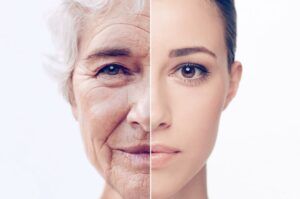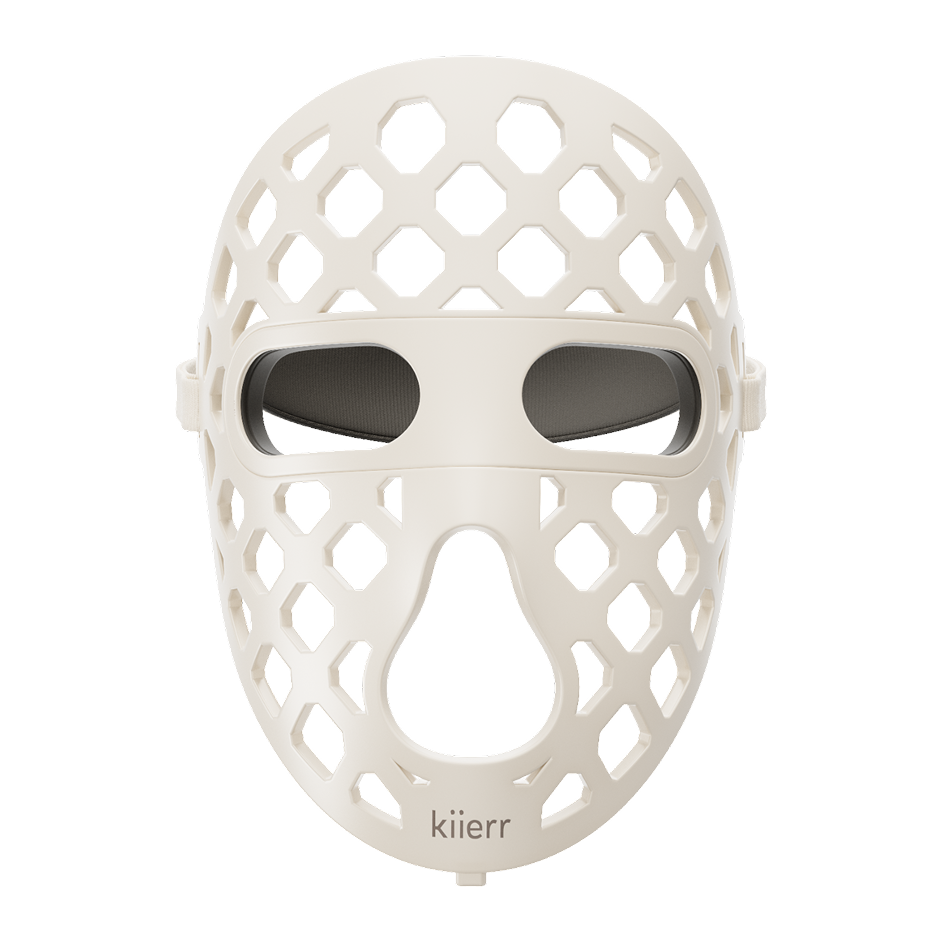Add items to get a Free Gift!
Fun Facts About Hair
Three Hair Loss Factors
Hair loss is a natural part of a healthy hair growth cycle. In short, the anagen (growth) stage lasts from three to four years, where the telogen (resting/shedding) stage lasts from three to four months. When both are operating in sync. 80-90 percent of the hair follicles are active, growing hair, and 10-12 percent are resting. On average, we lose around 100 strands of hair a day which surprisingly is not enough to notice. This is a typical cycle of a healthy head of hair. However, within a certain point of our lives, hair loss will affect us. Whether that be from age, stress, genetics, or other causes, unfortunately, hair loss is inevitable. If you are experiencing hair loss, make sure to understand the signs so you can remedy your hair before too much is gone. Keep reading to learn more about three hair loss factors.
Table of Contents
Age
 As we age, our bodies are constantly changing, so obviously our hair will change as well. Hair begins to lighten and thin, causing what was once a full head of hair, to be lost. There are two key factors of hair loss by aging, which are hormone changes, and our bodies inability to process nutrients efficiently.
As we age, our bodies are constantly changing, so obviously our hair will change as well. Hair begins to lighten and thin, causing what was once a full head of hair, to be lost. There are two key factors of hair loss by aging, which are hormone changes, and our bodies inability to process nutrients efficiently.
Hormonal changes are extremely common, especially within women. Estrogen is a huge promoter for thick hair, but as women age, the levels of estrogen produced begin to decline. Estrogen lengthens the growth stage of hair, while also stimulating the growth of new hair after the old hair has shed. So, with the decline of estrogen production in the body, often times hair begins to thin and is lost without new strands growing in its place. Same goes for men when it comes to hormones. As we age, hormone levels change, affecting the production of hair.
Our bodies also process nutrients differently when we age. Many vitamins and minerals are absolutely necessary for hair growth, such as iron and vitamin C. As we age, our bodies process nutrients less efficiently, leaving our hair at the whims of nutrient deficiencies. Other key nutrients that play a role in hair health include magnesium, B vitamins, selenium, niacin, and zinc. When our bodies lack the efficiency to hold on to these nutrients, it can be detrimental to keeping our hair.
Genetics
 Genetics can play a role in the loss of hair. Some studies showing 80% of balding is a direct affect from genetics.
Genetics can play a role in the loss of hair. Some studies showing 80% of balding is a direct affect from genetics.
The common theory that it is passed down from the mother’s side is signified by the X chromosome playing a role. Researchers have found a piece of the X chromosome often shared amongst balding men. They were then able to narrow down the region to a single gene called the androgen receptor gene, which is specifically related to balding. Every man has an X and Y chromosome, whereas a woman has two X chromosomes. So if your maternal grandfather was balding, he would pass down his ‘balding’ X chromosome to his daughter, which then would be passed down to you.
However, don’t go and blame your mother’s side just yet. While it is commonly thought that balding is only from the mother’s side, this isn’t the only case. Men and women can undergo balding from their paternal side just easy as their maternal.
Although scientists and researchers understand genetics play a huge role in balding, there is still much to be determined on the actual DNA that is causing it.
Stress
 Stress can have some major complications to the growth and nourishment of your hair. When we feel immense stress, our body begins to create cortisol. Your body begins to produce one hormone rather than producing hormones that promote healthy hair, causing the loss of hair in the process. Stress disrupts the natural process by triggering what is called Telogen effluvium. This doesn’t necessarily cause your hair to fall out, but instead causes hair to stop growing.
Stress can have some major complications to the growth and nourishment of your hair. When we feel immense stress, our body begins to create cortisol. Your body begins to produce one hormone rather than producing hormones that promote healthy hair, causing the loss of hair in the process. Stress disrupts the natural process by triggering what is called Telogen effluvium. This doesn’t necessarily cause your hair to fall out, but instead causes hair to stop growing.
By disrupting the process of hormone levels, it causes too many follicles to go into the resting stage at one time. The production of new hair follicles cannot keep up with the loss of the old. With this being said, more hair sheds than what is growing. Thankfully, it is not permanent, and most often goes away when your hormone levels become balanced again.
Conclusion
Age, genetics, and stress are the most common three hair loss factors among individuals. The older you get, the more prone you are to losing your hair. If your mother or father have a history of losing their hair, chances are you will too. Lastly, stress actually can cause hair loss by triggering telogen affluvium. Unfortunately, hair loss is inevitable for most people so make sure to take control in the earliest stages.

 LASER CAPS
LASER CAPS




 Beauty Products
Beauty Products





 Daily Deals
Daily Deals RESULTS
RESULTS




